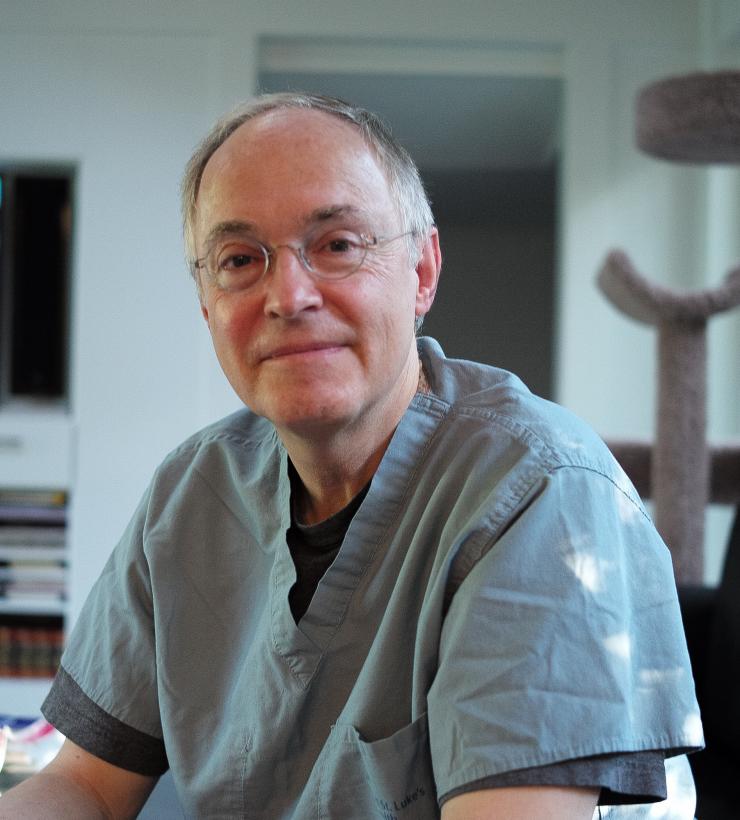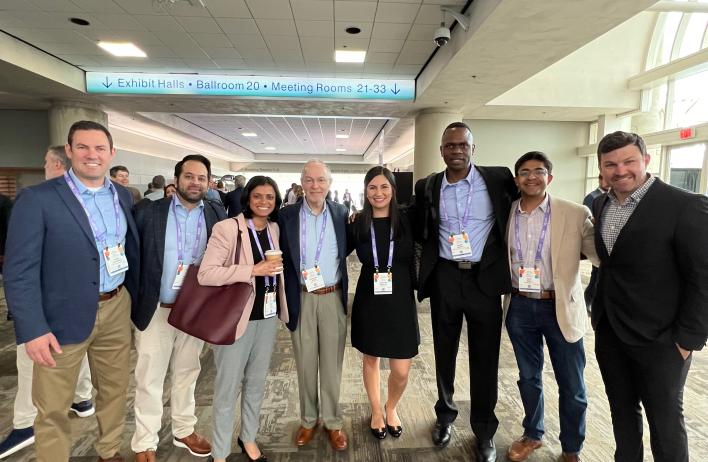Welcome

Thank you for visiting our website, which I hope answers many of your questions and stimulates your interest to learn more about our program. The fellowship is a comprehensive program dedicated to the preparation of the fellow for an academic or consultative cornea, anterior segment, and refractive surgical practice. We have remarkably diverse faculty mentors who work closely with our fellows throughout the year to maximize their educational experience.
Douglas D. Koch, M.D.
Fellowship Director
About Us
The Cornea, Anterior Segment, and Refractive Surgery Fellowship at Baylor College of Medicine consists of one year of post-residency training in the Department of Ophthalmology under the direction of Drs. Masih Ahmed, Alejandro Arboleda, Allison Chen, M. Bowes Hamill, Sumitra Khandelwal, Douglas D. Koch, Stephen C. Pflugfelder, Emily Witsberger, and Mitchell P. Weikert. We participate in the AUPO-sponsored SF Match. Two positions are available each year for the period from July 7 through July 6.
Our fellows are paid at the PGY 5 level. Detailed information about stipends and benefits is available on the Graduate Medical Education website.

Training Locations
The department is comprised of full-time clinical and research faculty members, with clinical activities principally located in the Alkek Eye Center and adjacent ambulatory surgery center, Michael E. DeBakey Veterans Affairs Hospital, and Ben Taub Hospital. In the Alkek Eye Center, fellows see patients in the mentors’ practices, whereas fellows serve as the primary physicians for patients seen at the VA and Ben Taub hospitals.
Additional clinical facilities include the Texas Children’s Hospital, Houston Methodist Hospital, and Baylor St. Luke’s Medical Center. The Alkek Eye Center just opened the Milton and Laurie Boniuk Surgical Education Center. This state-of-the-art wet lab is located in right next to the main operating room and provides 24-hour access to the latest equipment for practice.
Breadth of Training
Our fellows divide time among the fellowship mentors in these settings and gain extensive hands-on experience in the medical management and surgery of the broad spectrum of corneal and anterior segment condition, including:
- Penetrating and lamellar keratoplasty
- Endothelial Keratoplasty
- Complex cataract and intraocular lens procedures
- Infectious and inflammatory corneal conditions
- Refractive surgery (PRK, LASIK,SMILE, Implantable Collamer Lenses and incisional procedures)
- Ocular surface disease including limbal stem cell and amniotic membrane transplantation
- Unusual anterior segment disorders
- Pediatric corneal disease
- Anterior segment reconstruction
- Early and late repair of corneal trauma
Fellows participate in resident education and in biweekly journal clubs and a bimonthly corneal conference. Research is strongly encouraged.
Our program is unique in the diversity, volume, and depth of exposure to the range of conditions in this subspecialty. Fellows have ample surgical volume and clinical exposure as primary physicians as well as opportunities to participate in the care of the faculty’s patients. We believe that fellows graduate fully prepared to excel in academic or private practice subspecialty care.




Research
Research is strongly encouraged with many opportunities to participate. Fellows initiate and complete an independent investigative clinical project and present their results at a national meeting. They also participate in data collection and patient care related to ongoing clinical trials.
Career Planning: What paths do our graduating fellows take?
Over the 26 years of our fellowship, 22 graduating fellows have taken academic positions, and 30 have joined subspecialty private practices. Nearly everyone has secured their first choice. We support our fellows in their career aspirations and, with 9 of us serving as your mentors, we have extensive contacts throughout the country. We will be your biggest supporters.








